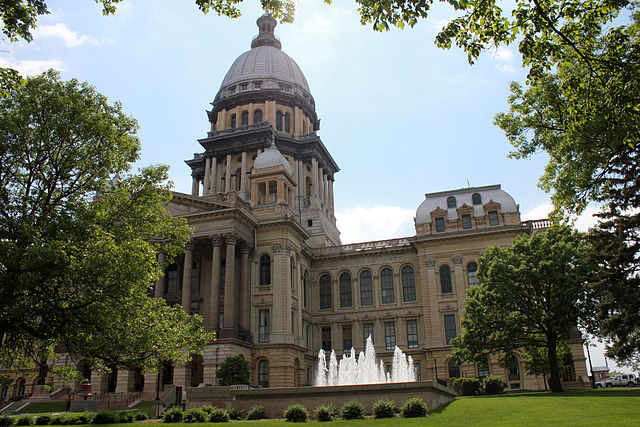
Illinois Attorney General Lisa Madigan filed the state’s argument in favor of the sweeping pension law on Monday. Illinois is arguing that pension protections are not absolute, and the law doesn’t violate the state’s constitution.
From the Chicago Tribune:
Lawyers for the state argued that the government’s so-called emergency police powers — the ability to take action to ensure the functions of government — trump the protections of the pension clause.
State lawyers said the ability to fund necessary government services, as well as to continue paying out pensions, has been severely hampered by paying an increasing amount of the state’s checking account to fund the pension systems.
“According to the circuit court’s holding, for example, faced with an epidemic requiring the state to purchase and distribute vaccines or other costly medication, the state could not even temporarily reduce pension benefits to cover those costs,” lawyers for the state argued.
“Nor, in a period of prolonged deflation … could the state reduce pension benefits even if the corresponding rise in benefits caused by 3 percent annually compounded COLAs caused every dollar of state revenue to be spent on pension benefits,” the state filing said.
Meanwhile, business leaders and legal experts who support Illinois’ pension reform law also filed briefs with the Supreme Court Monday arguing in favor of the constitutionality of the law.
Nine briefs were filed in total in support of the state, including one from the city of Chicago.
More from Reuters:
Illinois is getting support from its biggest city, business leaders and legal experts in its quest to defend the constitutionality of a 2013 law aimed at easing the state’s huge public pension burden.
The city of Chicago, social service providers and professors specializing in constitutional and contract law were among the parties that filed nine so-called amicus briefs with the Illinois Supreme Court by a Monday deadline.
The briefs backed the state’s appeal of a Nov. 21 court ruling that found the 2013 law violated a provision in the Illinois Constitution preventing retirement benefits for public workers from being impaired or diminished.
[…]
Illinois says it is required to maintain its sovereignty by the U.S. Constitution and that its police powers allow it to reduce retirement benefits to deal with the state’s fiscal emergency. Those arguments were echoed in briefs filed on Monday by legal experts and business group the Civic Committee of the Commercial Club of Chicago.
Chicago contended in its support brief that its efforts to rein in pension costs would be threatened if the court were to reject the state’s police powers argument.
The city, which is defending a 2014 law aimed at boosting funding for two of its four retirement systems from a union-backed constitutional challenge in Cook County Circuit Court, said it has a vital interest in the state’s case.
“Failure to achieve reform for the Chicago funds would have a devastating impact on Chicago’s economy and its delivery of essential services, as well as on the retirement security of current and former employees,” Chicago’s filing stated.
The Chicago Public Schools, the nation’s third largest school system, also backed the state’s position, as did Chicago’s transit authority and park district.
Illinois is shouldering over $100 billion of unfunded pension liabilities. The state has the worst credit rating of any state in the country.


